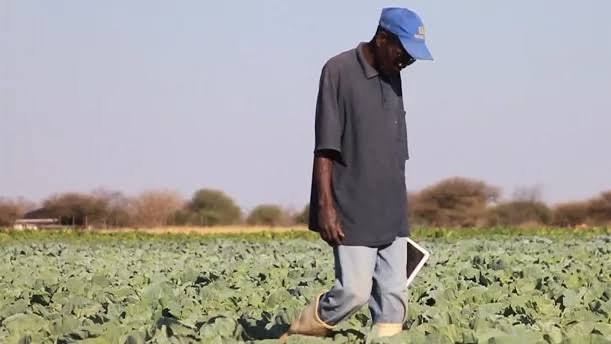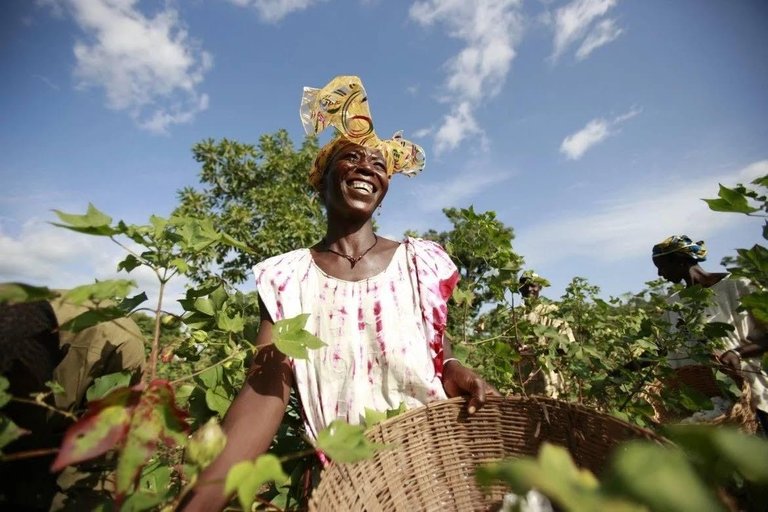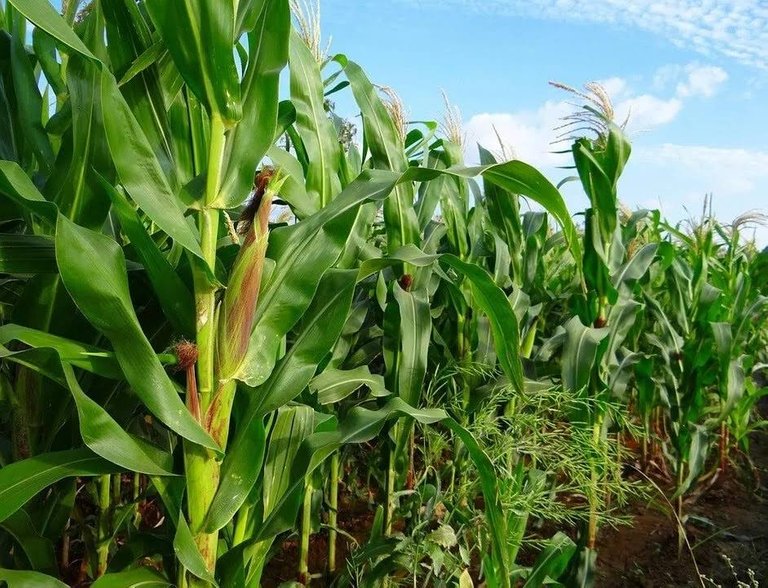ROLES OF AGRICULTURE IN AN ECONOMY
Before we digress, let us know the definition of 'Agriculture'.
'Agriculture” may be defined as: the art and science of growing plants and other crops and the raising of animals for food, for human needs, or economic gain .
Agriculture has been regarded in recent times as the most viable route with which Nigeria can successfully meander from her current economic dilemma. This article is aimed at shedding some light on the role of agriculture in the Nigerian economy.
Agriculture involves the science, practice and occupation of cultivating land and raising crops. It also involves the feeding, breeding and raising of livestock. The main purpose of agriculture is to provide food and raw materials for human use.
Nigeria is currently poised to be a world power in the agricultural sector.
The fact that Nigeria is richly blessed with abundant human and natural resources is one point that has been consistently repeated in various fora. However, permit me to re-echo it with some statistical data.
As at the time of writing this article, 80% of the land mass in Nigeria was considered as good enough to Support crop planting activities; that is the land is arable. This land area amounts to about 82 million hectares. Unfortunately, only about half of this arable land mass is being currently cultivated.
Agriculture currently contributes between 30 and 40 percent to the national gross domestic product (GDP) of the country with a huge majority of the rural population engaging in subsistence agriculture.
The relatively diverse variety of climatic conditions in Nigeria makes it possible to raise a wide range of crops across the country. The climate varies from the desert like and savannah climate in the north and central regions to the thick rain forests of the southern region.
The major crops grown in economic quantities in Nigeria are beans, sesame, cashew nuts, cassava, cocoa beans, groundnuts, gum Arabic, kolanut, maize, melon, millet, oil palm, plantain and banana, rice, rubber, sorghum, soybeans and yams.
Coupled with these crops, Nigeria also produces fruits such as pineapples, cherry and citrus (oranges, lemon, lime and tangerine)
Agriculture has been regarded in recent times as the most viable route with which Nigeria can successfully meander from her current economic dilemma. This article is aimed at shedding some light on the role of agriculture in the Nigerian economy.
Agriculture involves the science, practice and occupation of cultivating land and raising crops. It also involves the feeding, breeding and raising of livestock. The main purpose of agriculture is to provide food and raw materials for human use.
Nigeria is currently poised to be a world power in the agricultural sector.
The fact that Nigeria is richly blessed with abundant human and natural resources is one point that has been consistently repeated in various fora. However, permit me to re-echo it with some statistical data.
Prior to the discovery of oil in Nigeria, agriculture was the mainstay of the economy. Agriculture was then the highest earner of foreign exchange for the country, and Nigeria was also largely self-sufficient in food production.
However, with the discovery of oil, the lure of petro dollars turned the focus of the country from agriculture. Nigeria began to import food that we could have easily produced locally. As we can now see, these activities have had adverse effect on the economy of the nation in the long run.
Although agriculture is no longer the focal point of the Nigerian economy, it still plays some important roles in the country. These roles are listed below.
Massive Employer of Labour
Although no longer the largest sector of the Nigerian economy, agriculture still remains the single highest employer of labour in Nigeria, most especially in the rural areas. As of 2010, agriculture alone was employing about 30% of the population, and this figure is steadily on the increase because a whole lot of young people are picking up agriculture as an alternative after leaving school.
Nigeria currently has a very high youth unemployment rate and this is beginning to result in a security threat in the country. Agriculture has the potential to rescue Nigeria from this quagmire.
Foreign Exchange Earner
Again, after oil, agriculture is the second highest foreign exchange earner for the country. In the agricultural sector, cocoa is the highest foreign exchange earner with Nigeria producing more than 200,000 tons of cocoa per annum. This output can be greatly increased if the current traditional methods of cultivation are traded for more modern mechanized methods.
After cocoa, rubber is currently the second highest non-oil foreign exchange earner for Nigeria.
Diversification of the Economy
With the current dwindling of crude oil prices in the international market, there has never been a time that Nigeria needs to diversify more than now. In the quest for diversification, agriculture seems to the most sustainable way forward.
If the proper investments are made in the agricultural sector, the current contributions being made to the economy by this sector can be doubled or even tripled because Nigeria has both human and natural resources to achieve this potential.
Food Security
It is a common saying that the quality of food consumed by a people is a stark revelation of the quality of life of the people. With a population of more than 160 million and growing, Nigeria needs to produce enough food to cater for her growing population and also export to earn foreign exchange.
Nigeria is currently looking to cut down on the huge amounts of money in foreign currency that is spent on subsidizing food imports. A sure way of achieving this is to leverage on the comparative advantage of good weather and vast arable land that Nigeria has, to produce food to cater for her population and also feed other nations.
In recent years, the government of Nigeria has put forth policies to promote agriculture in the country. Although a lot has been achieved in the area of food security, a lot still has to be done.
Provision of Raw Materials to Support Industries
Another major role currently being played by the agricultural sector in Nigeria is in the provision of agro based raw materials to cater for the fledgling manufacturing and production industry. Crops such as cotton, cassava and oil palm, as well as animal products such as cattle hide and wool are very important raw materials that are in high demands in a variety of industries.
An abundance of raw materials will boost the output of the existing industries and also attract foreign direct investments (FDI) into the country.
The role of agriculture in Nigeria’s economy cannot be over emphasized. As it stands now, the role of agriculture is on the ascendency because of the current fall in oil prices. The government should do well to build on the progress of the previous administrations in the area of agriculture. As well as the government, the citizens of Nigeria should also focus more on agriculture because it is extremely important, highly sustainable and also largely under explored.
Agriculture is Health
Agriculture is wealth
God bless the world
God bless Africa
God bless Nigeria
God bless Steemit



.jpg)
Hi! I am a robot. I just upvoted you! I found similar content that readers might be interested in:
https://infoguidenigeria.com/role-agriculture-nigerias-economy/
Congratulations @tfame3865! You have completed some achievement on Steemit and have been rewarded with new badge(s) :
Click on any badge to view your own Board of Honor on SteemitBoard.
For more information about SteemitBoard, click here
If you no longer want to receive notifications, reply to this comment with the word
STOPgood one
Agriculture all the way.
Being an agriculturist is very good for our nation
Goood writeup
Agriculture is the key to a wealthy country
Africa as a whole truely need to wake up in agricultural sector
Agriculture is vital in every economy.Africa need a full blown mechanised agriculture to meet demands
For real
God bless Nigeria
O F N
Exactly bro, agriculture is wealth.
True.
Agriculture!....